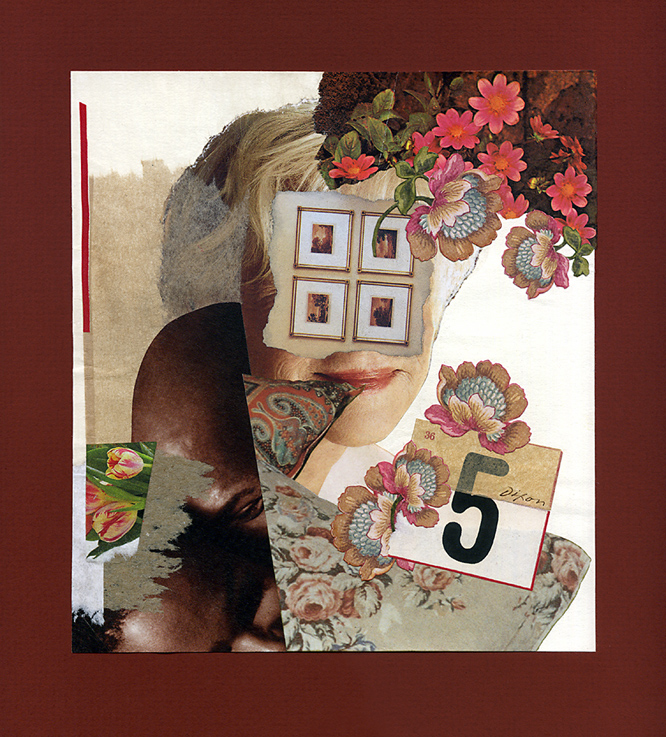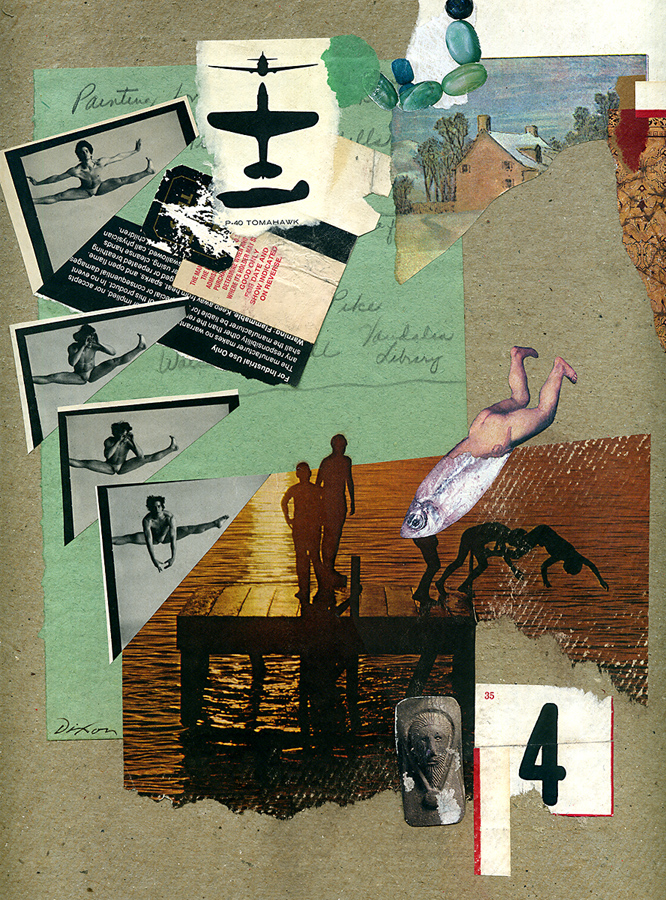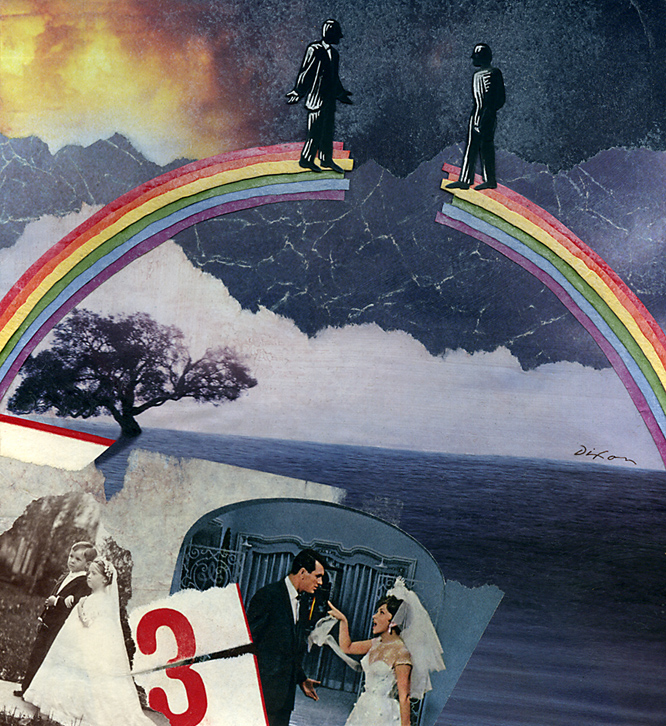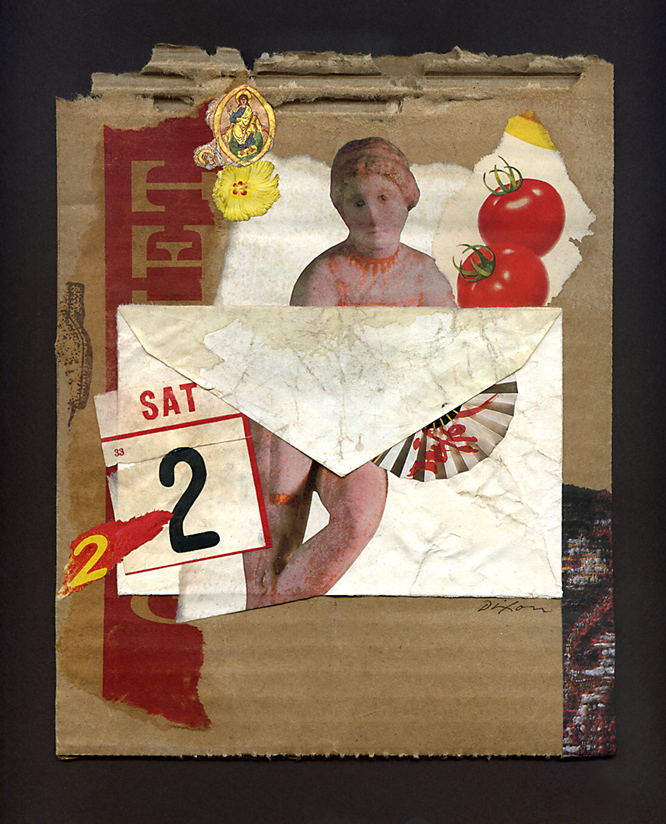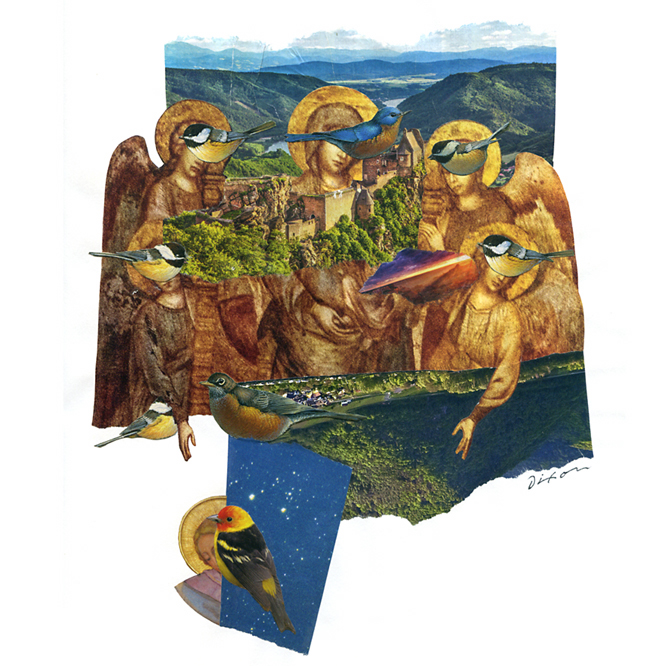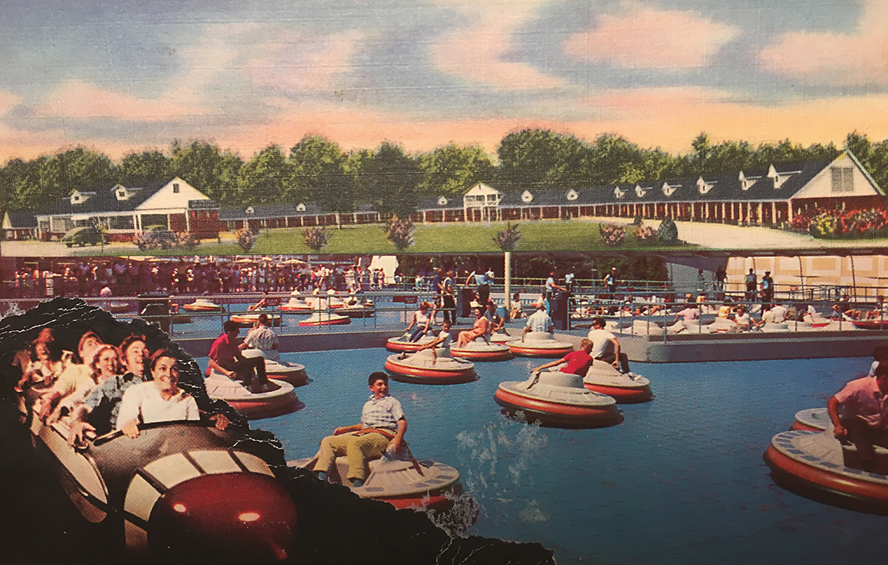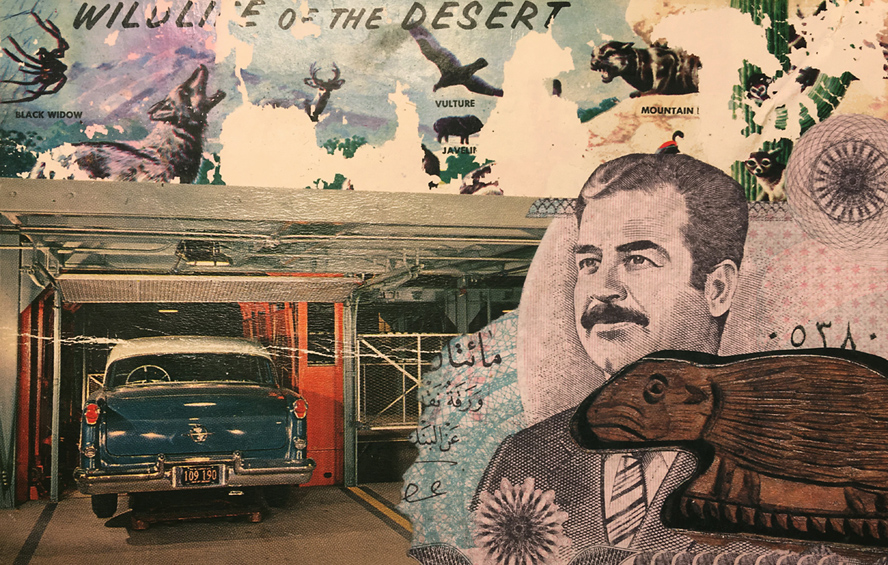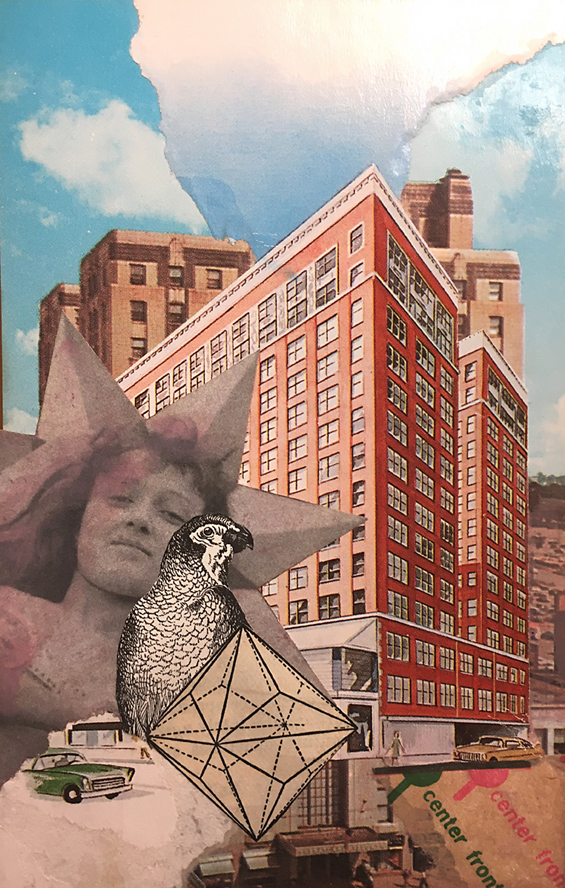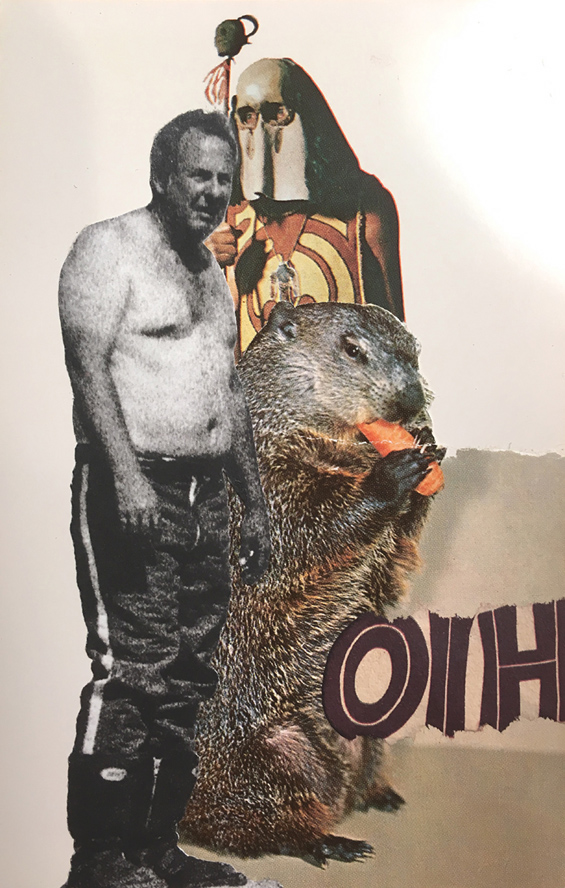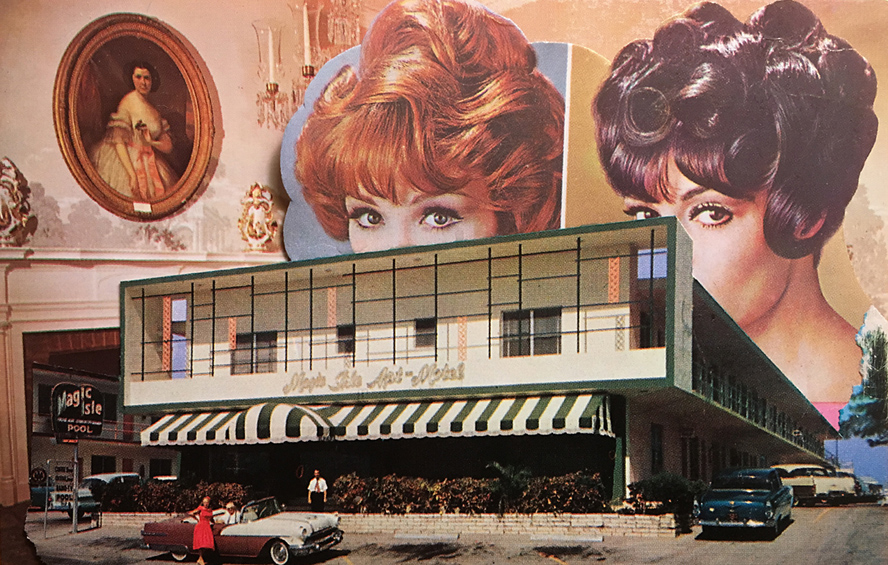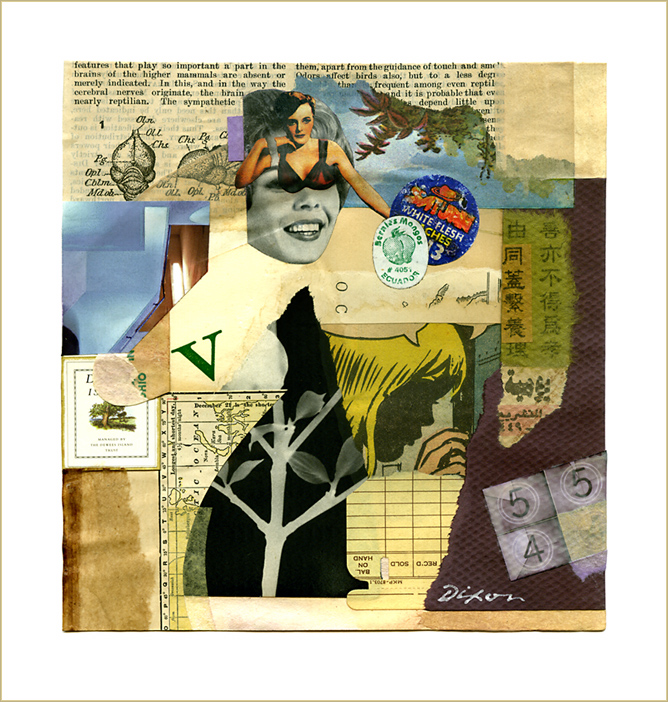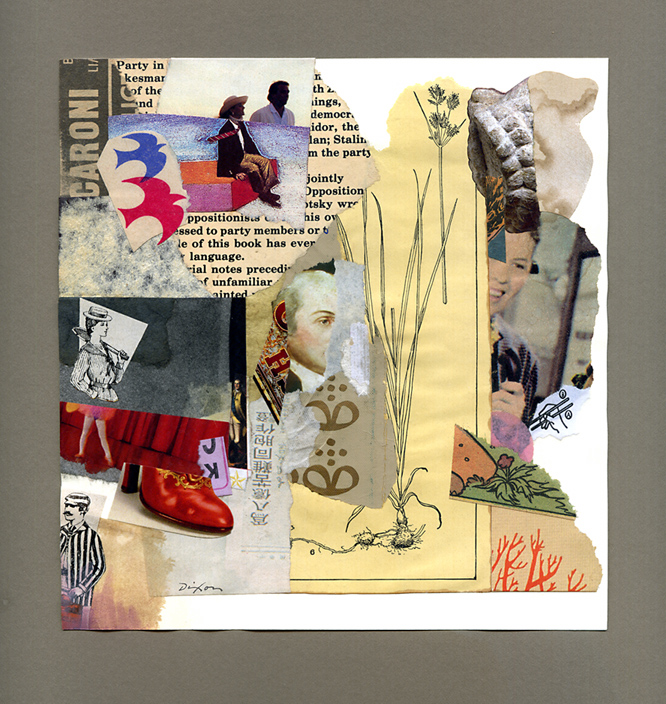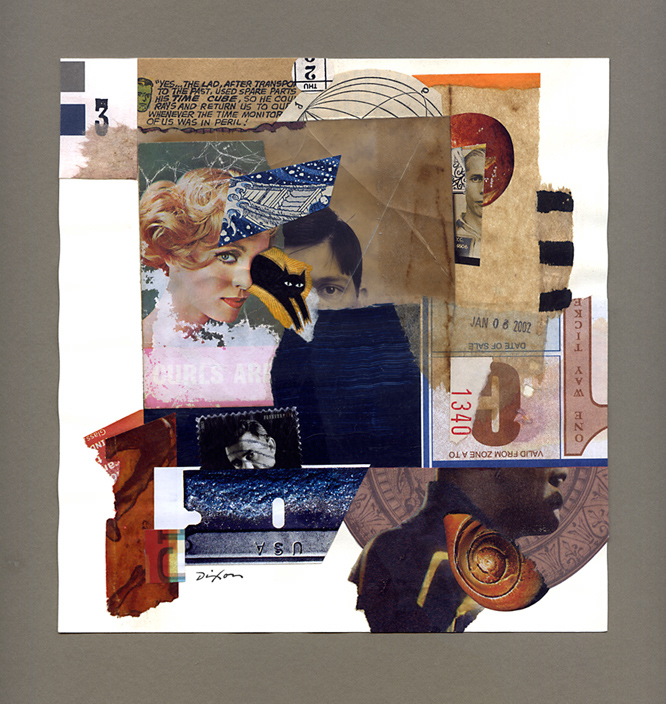Untitled (flowers)
collage experiment by J A Dixon
6.25 x 6.875 inches
for Februllage 2019
Archive for the ‘Experiments’ Category
Februllage ~ day five
Tuesday, February 5th, 2019Februllage ~ day four
Monday, February 4th, 2019Untitled (leap)
collage experiment by J A Dixon
9.875 x 12.375 inches
for Februllage 2019
Februllage ~ day three
Sunday, February 3rd, 2019Untitled (connect)
collage experiment by J A Dixon
7.25 x 7.875 inches
for Februllage 2019
Februllage ~ day two
Saturday, February 2nd, 2019Untitled (enclosed)
collage experiment by J A Dixon
7 x 9 inches
for Februllage 2019
Februllage ~ day one
Friday, February 1st, 2019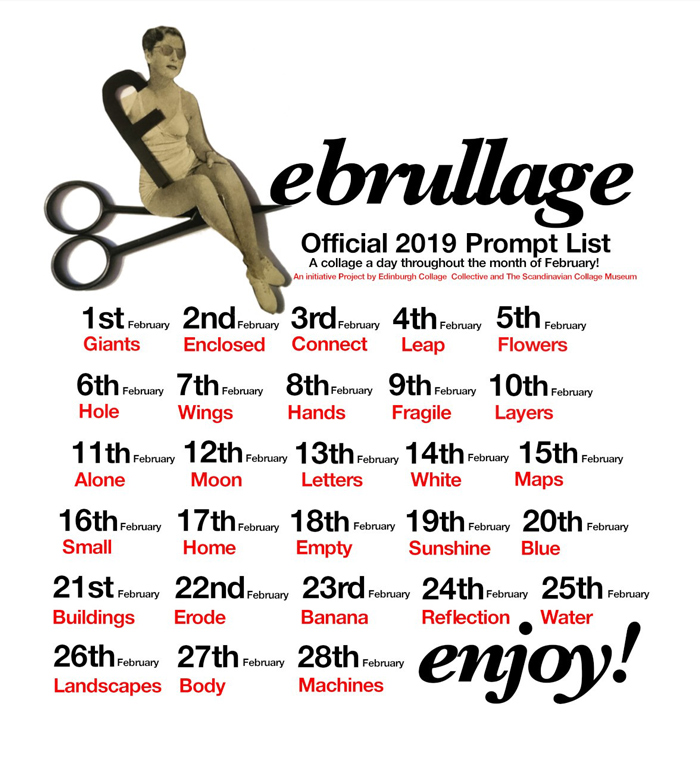 Today is the commencement of Februllage, a month-long, collage-a-day initiative of Edinburgh Collage Collective and The Scandinavian Collage Museum. I’ll be keeping my eye on the Instagram-centered project. There’s already an overwhelming flurry of creative activity, and I intend to jump in sporadically when a daily ‘prompt word’ ignites. I have more than enough studio obligations to fill my winter calendar, but it’s always important to keep the pump primed. March has been my favored month for tackling a collage-per-day ritual, and the exercise has always proved rewarding. Take a look at my first one in 2013, and please stop back to see how the Februllage challenge shapes up here.
Today is the commencement of Februllage, a month-long, collage-a-day initiative of Edinburgh Collage Collective and The Scandinavian Collage Museum. I’ll be keeping my eye on the Instagram-centered project. There’s already an overwhelming flurry of creative activity, and I intend to jump in sporadically when a daily ‘prompt word’ ignites. I have more than enough studio obligations to fill my winter calendar, but it’s always important to keep the pump primed. March has been my favored month for tackling a collage-per-day ritual, and the exercise has always proved rewarding. Take a look at my first one in 2013, and please stop back to see how the Februllage challenge shapes up here.
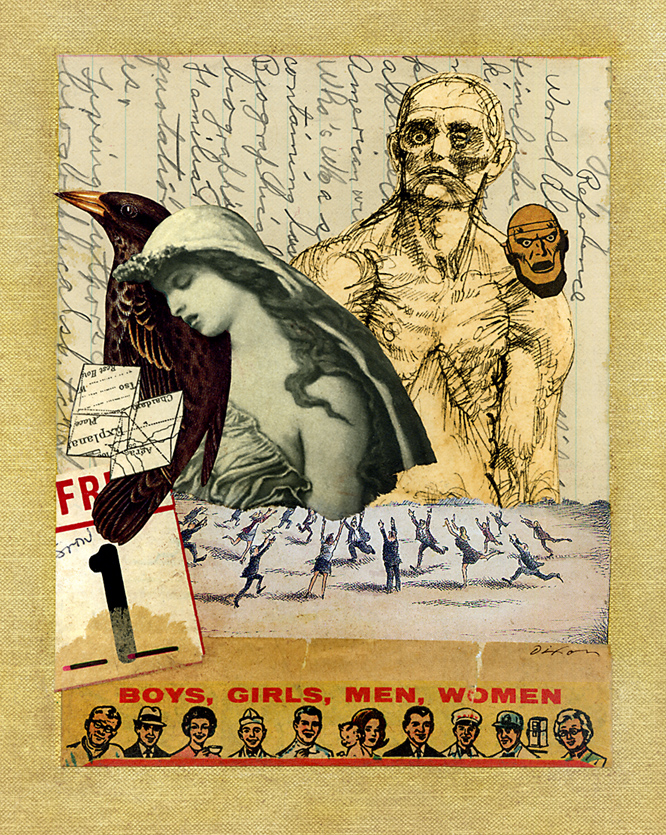
Untitled (giants)
collage experiment by J A Dixon
6 x 7.75 inches
for Februllage 2019
Back at the nest: more stretching
Monday, January 21st, 2019Here’s a quick journal collage using only a small pile of junk mail at the home of Mombo, before it went into her recyclables. Not everything is performance. Athletes call it training. Musicians call it practicing. I’m not sure what most visual artists typically call it — sketching? exercising? At any rate, whatever the medium, we all need to do it regularly, too!
Untitled (host nest)
journal collage by J A Dixon
7 x 9 inches
Cut & Post
Saturday, December 22nd, 2018The Edinburgh Collage Collective has made a splash in the international collage scene over the past couple years, and it closed out 2018 with its Cut & Post project. The Collective and collage artist Mark Murphy, along with guest jurists, collaborated to select a group of finalists from postcard-based collage artworks submitted from around the world in order to produce a limited edition set of collector cards. Organizers told Kolaj Magazine that they “featured a wide range of submitted works on social media and showcased as many postcard collages as possible, demonstrating the diverse visual responses and interpretations.” According to the publication, “the project joins a list of strategies collage artists are using to curate and disperse collage outside of the gallery exhibition format.” With over 1400 individual pieces of work electronically submitted, the project sponsors admit to being “completely overwhelmed by the response.” There is talk of exploiting the body of accumulated images beyond the original scope of the open submission.
Below are five experimental pieces that I created for the submission. I also included two previous collage artworks with postcard ingredients among the total seven image files that I sent to Edinburgh for consideration, but none of them made the project’s “first cut.” I shall keep my fingers crossed and look ahead to new initiatives from a city shaping up to be a world center for the medium. (More about that next year!)
Five experimental post cards that I submitted to the ‘Cut & Post’ project that was based in Edinburgh, Scotland
Modern Use
Monday, December 17th, 2018“As long as movements require our attention they are kata (form), when the kata become spontaneous they become waza (technique). As long as we persist in viewing kata superficially, we will begin to think that they are of special importance.”
— Yushio Kuroiwa
When explaining aikido, the late martial artist Yushio Kuroiwa taught the practice of rational movement, so that one could spontaneously execute a natural movement as a result. For me, this idea has a distinct parallel to the art of collage, which is based on repetitive experimentation. With study and discernment, the collage artist can discriminate the difference between a superficial composition that was contrived with too much self attention, and an intuitive composition that developed more naturally — an expression of synchronicity — that grew from understanding the essence of creativity.
Kuroiwa encouraged his students to not blindly follow masterful forerunners, but to observe and discover their “causes, effects, and processes of things, and their similarities and differences through experience.” He pointed out that “someone with poor handwriting cannot write beautifully, even when using a good pen. A skilled calligrapher, however, can write beautifully even when using an inexpensive pen. It is not that the pen is good, but rather that the writer’s ability, as a result of long experience, is excellent.”
It is beneficial to keep in mind that even though we are “working artists,” much of our “work” is not significant in and of itself as an artistic product, especially if it is merely a conscious application of formulae largely exhausted decades ago during the formative years of our medium as a modern art. Instead, maintain your drill, your ritual of formation, not to yield marketable artifacts, but to internalize an “organic” process that leads to a rewarding sense — that we have freely expressed the natural ability to create something with real spontaneity.
Thanks for visiting. Now, let’s go make more art . . .
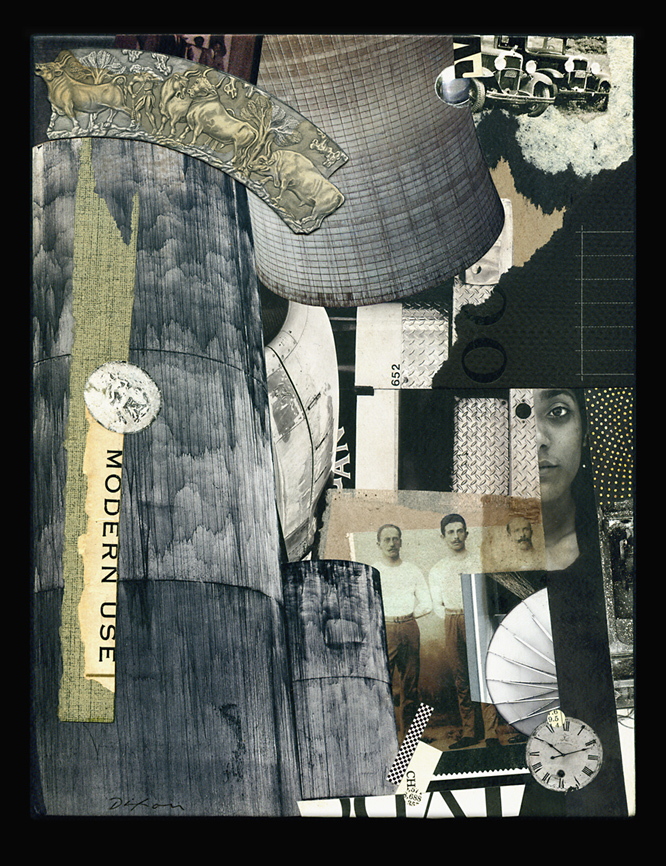
Modern Use
collage experiment in monochrome by J A Dixon
8.375 x 11 inches
Purchase this artwork.
V: To Beds Less Sanctified
Tuesday, October 9th, 2018V: To Beds Less Sanctified
collage experiment on paper by J A Dixon
6.75 x 7 inches
Own this experiment.
Caroni: Vexing Trifles
Tuesday, September 4th, 2018Caroni: Vexing Trifles
collage experiment on paper by J A Dixon
6.75 x 7 inches
Own this experiment.
1340: Discreet Curiosities
Tuesday, August 28th, 20181340: Discreet Curiosities
collage experiment on paper by J A Dixon
6.75 x 7 inches
Own this experiment.
